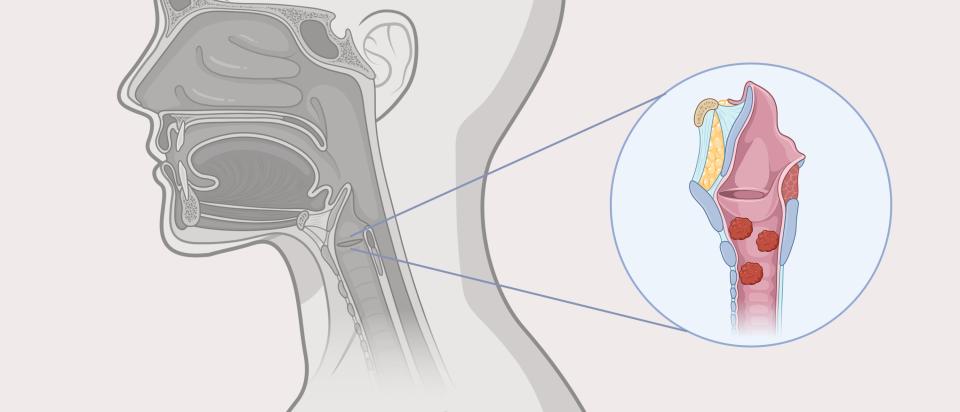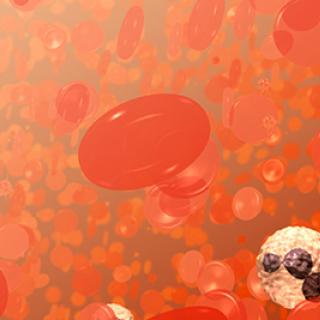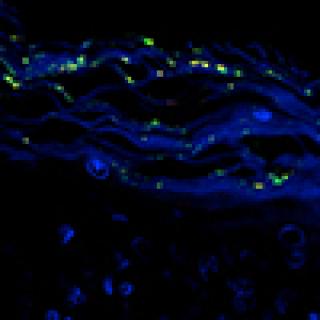News and Events
CCR Research Leads to FDA Approval of First Immunotherapy for Recurrent Respiratory Papillomatosis
The U.S. Food and Drug Administration has granted full market approval for Papzimeos (zopapogene imadenovec-drba), a groundbreaking non-replicating adenoviral vector-based immunotherapy designed for adult patients with recurrent respiratory papillomatosis (RRP).
Read MoreFighting a rare central nervous system tumor with research and optimism
In January 2016, Sarah Rosenfeld had such severe pain shooting down her legs she couldn’t walk, sleep or care for her young daughters. After weeks of physical therapy for what she thought was sciatica, she had an MRI. Thirty-seven-year-old Rosenfeld learned she had something far worse: myxopapillary ependymoma, a rare cancerous tumor in her spinal cord. She came to the NIH for treatment options and enrolled in a clinical trial with Mark Gilbert, M.D., Chief of the Neuro-Oncology Branch at the Center for Cancer Research.
Read MoreFDA grants orphan drug status to selumetinib for neurofibromatosis type 1 (NF1) treatment
The U.S. Food and Drug Administration granted orphan drug status in February to selumetinib for use in patients with the genetic disorder neurofibromatosis type 1 (NF1), who often develop tumors of the peripheral nervous system. Receiving orphan drug designation is a helpful step for selumetinib.
Read MoreActivated platelets can promote tumor cell invasion into healthy tissue
Pre-clinical studies conducted by CCR investigators and colleagues show that platelets, tiny cells that promote blood clotting, when activated by the CD97 protein on the surface of tumor cells, enable the tumor cells to invade healthy tissue and then metastasize. The study, published April 17, 2018, in Cell Reports, was led by Kathleen Kelly, Ph.D., Chief, Laboratory of Genitourinary Cancer Pathogenesis.
Read MoreNew study shows normally helpful natural bacteria may also trigger lupus
CCR scientists have discovered that a protein produced by bacteria that naturally inhabit our bodies may trigger the autoimmune disease lupus. The results of the study could unveil an entirely new set of drug targets for treating lupus and other autoimmune diseases. Read more…
Read MoreNew clinical program will study metastatic colorectal cancer in viable patient tissue samples
Jonathan Hernandez, M.D., Investigator in the Thoracic and Gastrointestinal Oncology Branch, has established a new clinical program to understand how metastases form, which may yield insights into how to treat or even prevent them. The program will conduct first-of-their-kind studies with tumor-containing liver that is kept alive outside of the body after it is removed from a patient. Read more…
Read MoreFormer clinical trial patient featured on CBS This Morning
Dr. Jon LaPook, Chief Medical Correspondent at CBS News, recently featured Michael Becker during a segment on CBS This Morning. Becker, who is a former patient of James Gulley, M.D., Ph.D., Chief of the Genitourinary Malignancies Branch, is fighting head and neck cancer caused by the human papillomavirus (HPV). He previously participated in a clinical trial at CCR and has made it his personal mission to spread the word about the HPV vaccine. Watch the segment here…
Read MorePediatric patients featured in NIH Children’s Inn 2017 Annual Report
Lucy was diagnosed with Hyper IgE syndrome or Job’s syndrome – a rare genetic illness that puts her at risk for developing serious lung and skin infections. Avery has a rare NFKB1 gene mutation that compromises her immune system. For both patients, clinical trials at the Center for Cancer Research provided life-saving bone marrow transplants to address infections caused by immune deficiencies. Lucy and Avery stay at The Children’s Inn when they come to NIH for treatment. Read Lucy’s story (page 3) and Avery’s story (page 5) in the Children’s Inn Annual Report…
Read More






